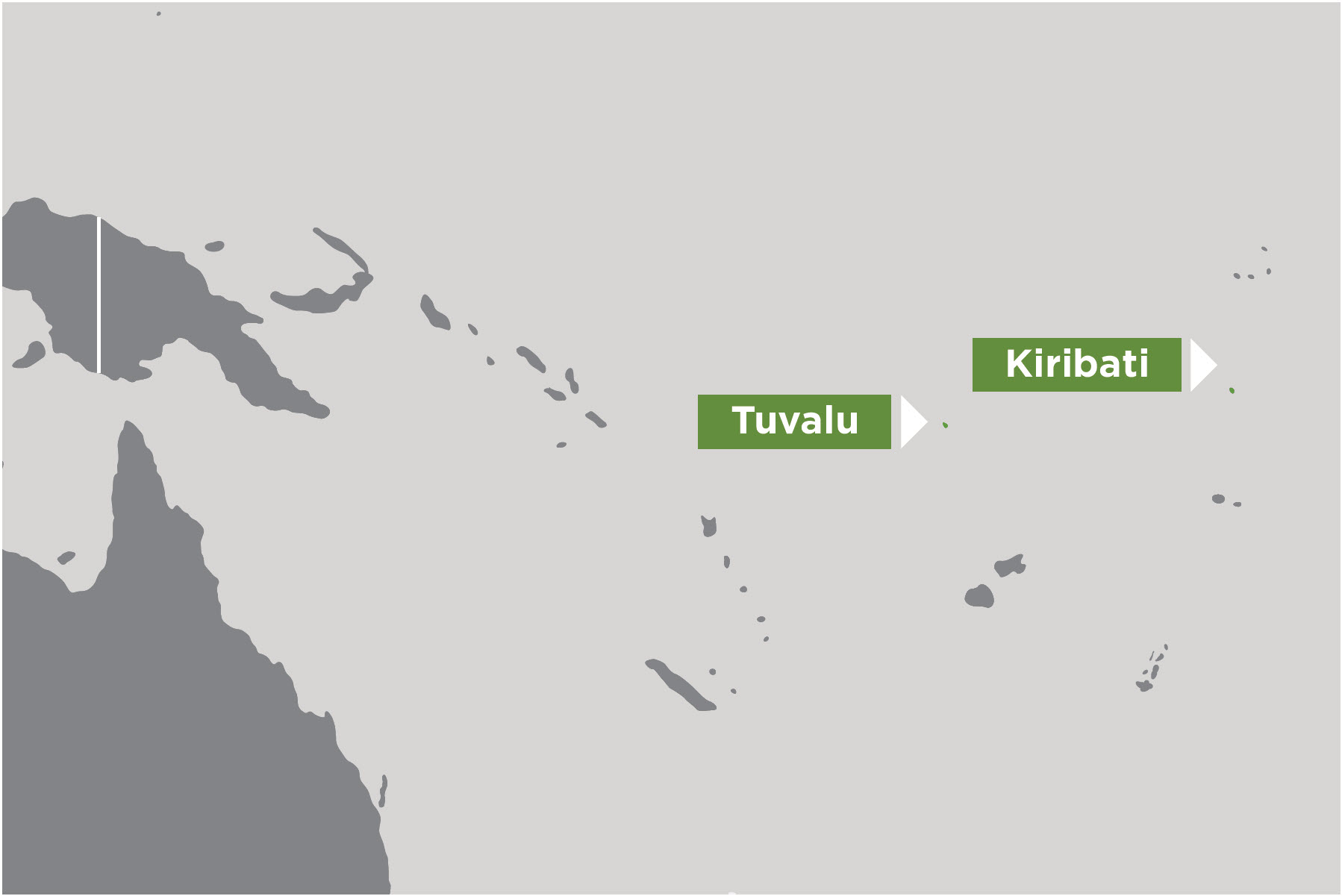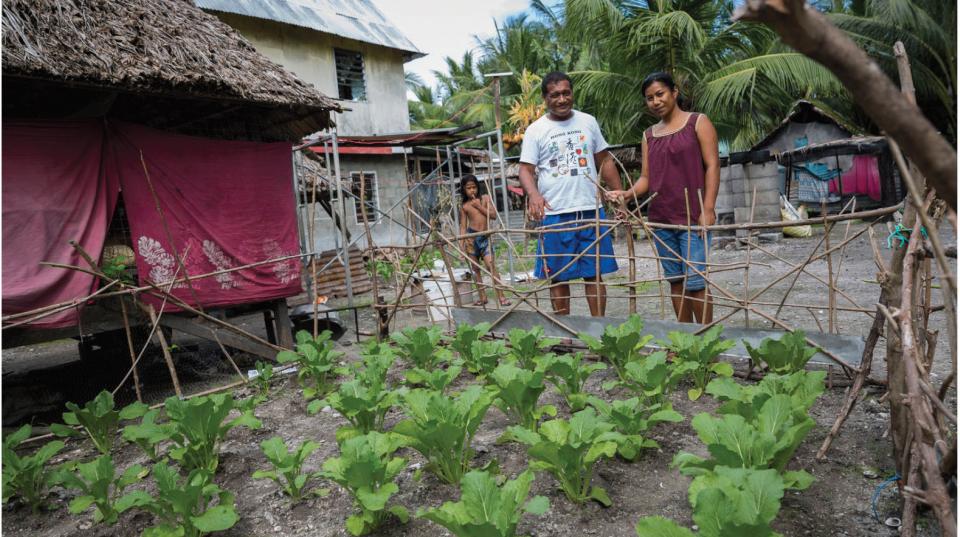Overview
This project aimed to improve the livelihoods of the people living in the coral atolls of Kiribati and Tuvalu.
Atolls of the Pacific islands are among the most vulnerable communities to the impacts of climate change and are facing major challenges to their food and income security.
Malnutrition is a significant concern and non-communicable diseases (diabetes, heart disease and micronutrient deficiencies) are increasingly evident as awareness of the effect of poor diet is low. Diets in Kiribati and Tuvalu have traditionally been based on fish and other marine animals and heavy on starch (giant swamp taro and breadfruit), with some fruits but few vegetables. Agricultural production in both countries is restricted by lack of seeds, water shortages and salinity, poor soils, and lack of tools and knowledge of farming practices, and limited guidance from extension services. As a result of limited agricultural production, Kiribati and Tuvalu consume more than they produce.
In order to achieve food security on atolls, the above critical issues needed to be addressed by building capacity of key stakeholders to ensure soil constraints are addressed in order for the households of Kiribati and Tuvalu to produce starchy staples and nutritious food.
Project outcomes
- Improved food production systems for starchy staples resilient to harsh atoll conditions using integrated pest and soil management.
- Documented information generated by the project on how to organically grow, manage, prepare and preserve nutritious vegetables/fruits in household and school gardens.
- Identified and developed a fresh produce value chain for sale of surplus food production. The mass balance of nutrients will be incorporated into the value chain analyses.






